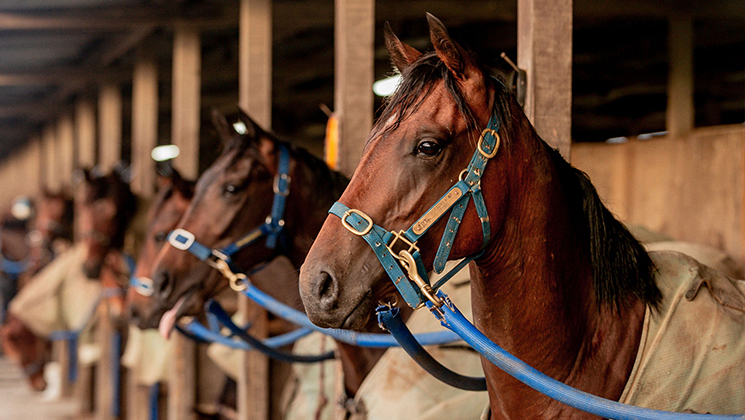What Happens During the Auditing Procedure?
The size of the Audit team will be dependent on the number of horses on a property. For example, a medium-sized stable (10-30 horses) would likely be audited by a veterinarian and three others. Ensuring that Stable Returns and other relevant records (including timely submission of SR24 Death or Retirement notifications) are up to date will ensure the Audit team is appropriately resourced and the process is as efficient as possible.
On arrival, the Audit team will outline the process and depending on stable size, will split into two groups with one team assessing facilities (fencing, water, gear, etc), while the other, including the veterinarian, will focus on the horses (animal health, treatment records, feed, medications etc).
Each stable will need to provide a staff member to assist the veterinarian with horse examinations that will assess body score, condition of hooves and overall wellbeing of the animal. The identity of all horses present at the time of Audit will be recorded and provided to NZTR to assist with their traceability efforts.
Audits will be based on the NZTR Thoroughbred Welfare Detailed Assessment Standards.
NZTR Thoroughbred Welfare Detailed Assessment Standards were released July 2023 and can be viewed below:
These standards are more detailed, enabling welfare provisions and the horse’s welfare to be more easily assessed. This is intended as a further resource for Trainers, Breeders, Owners or other Accountable Persons (refer Rule 1429 in the Rules of Racing) to be assured that their horse welfare provisions measure up to acceptable standards, and as basis for welfare assessment during Stable Inspections.
CLICK HERE
Common Errors
Audits have been completed in both the Greyhound and Harness racing codes and from those inspections, it was found that the seven most common shortcomings related to:
- Failure to accurately maintain Stable Returns or to submit Death or Retirement forms on a timely basis (details available here)
- Treatment logbooks not accurately maintained
- Treatments either not securely stored, or expired or unlabelled, or not used for the prescribed purposes
- Inadequate maintenance of stables or fences (broken timbers, protruding wire ends or nails or screws or metal edges)
- Water supply troughs or containers not cleaned (accumulation of algae or other contaminants)
- Unlicensed stable staff
- Lack of an Emergency Management Plan (details available here)
Please take the time to self-assess your stable against the Thoroughbred Welfare Detailed Assessment Standards (and these above seven common shortcomings) to remedy any issues without delay and get ahead of pending stable inspections.






